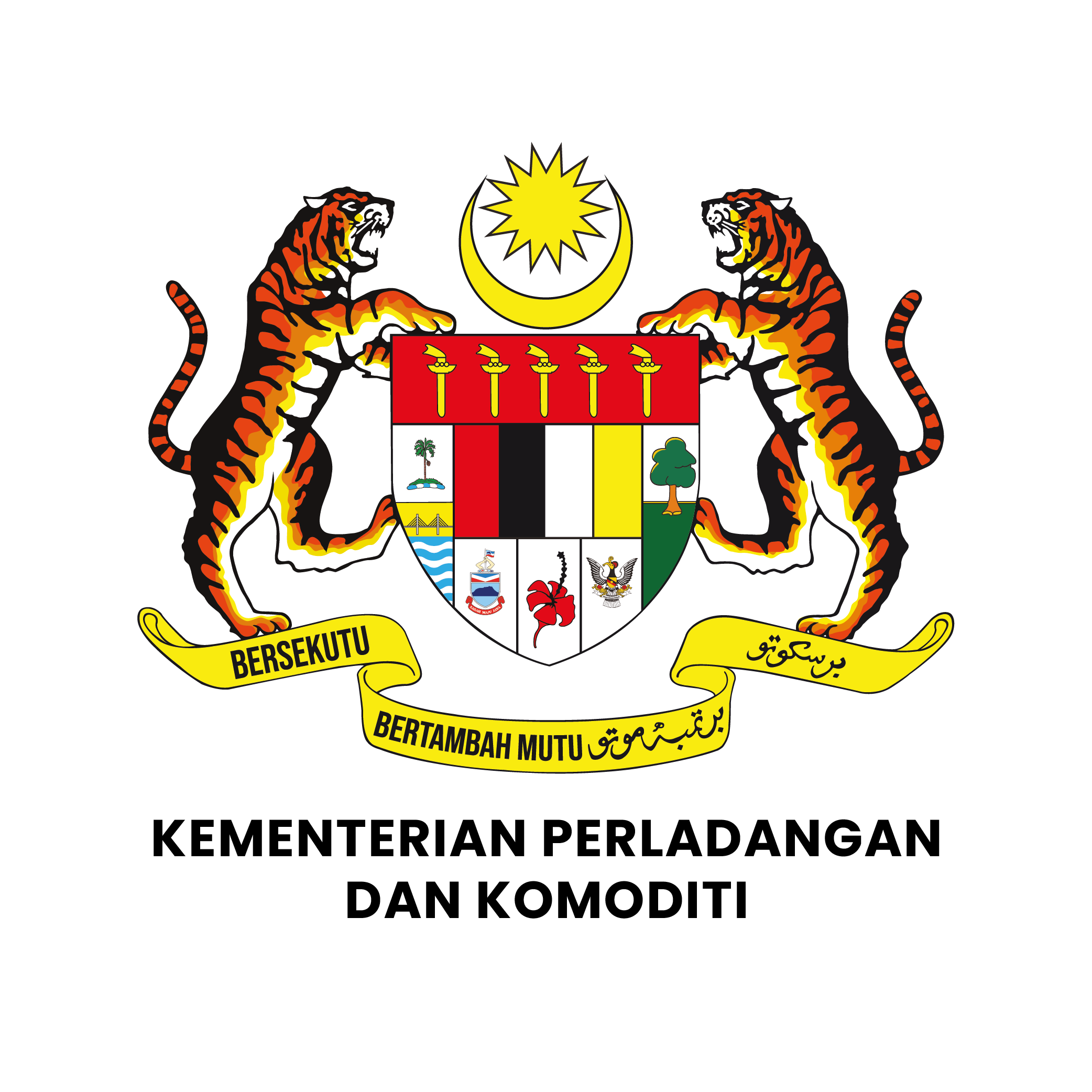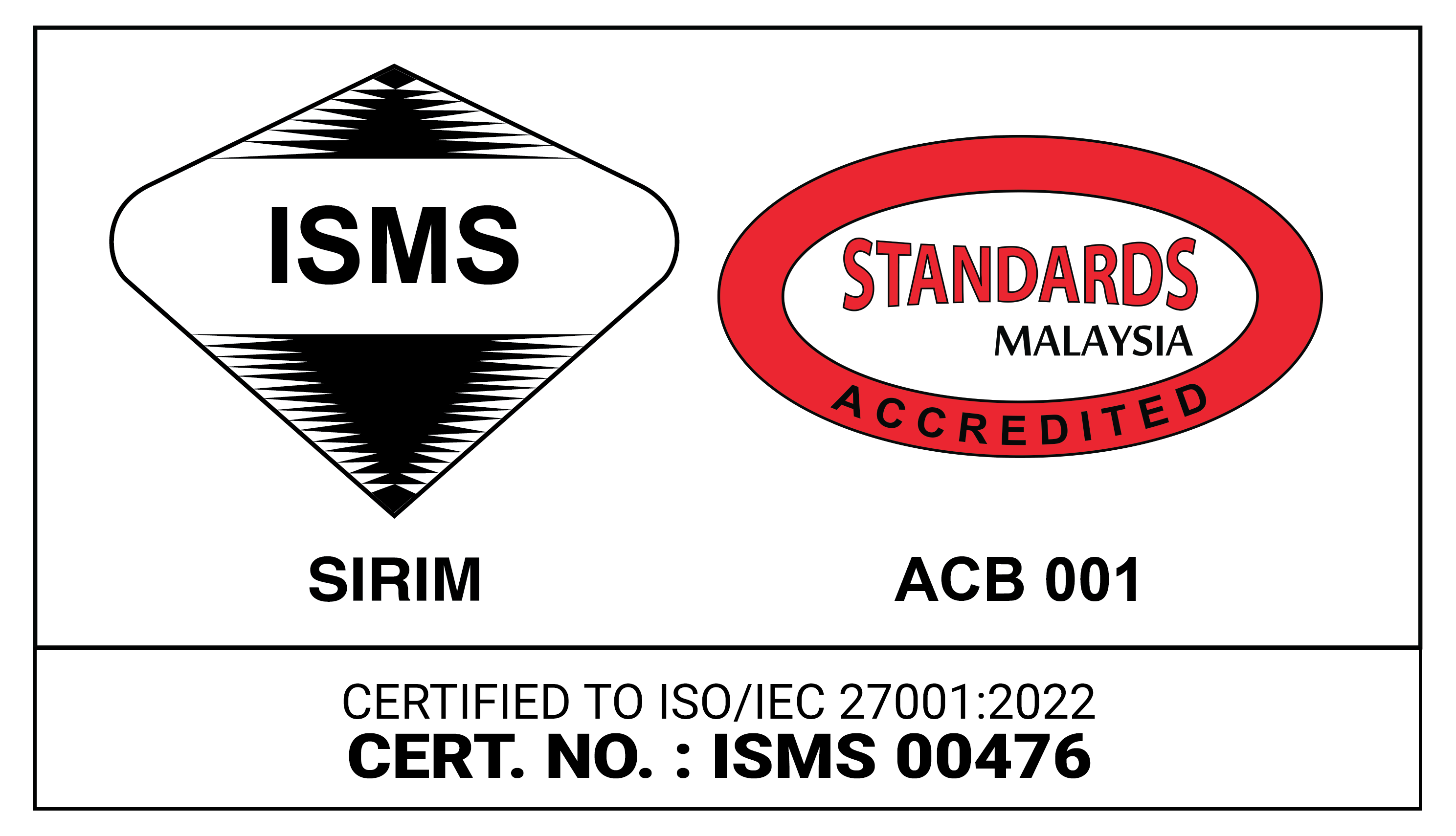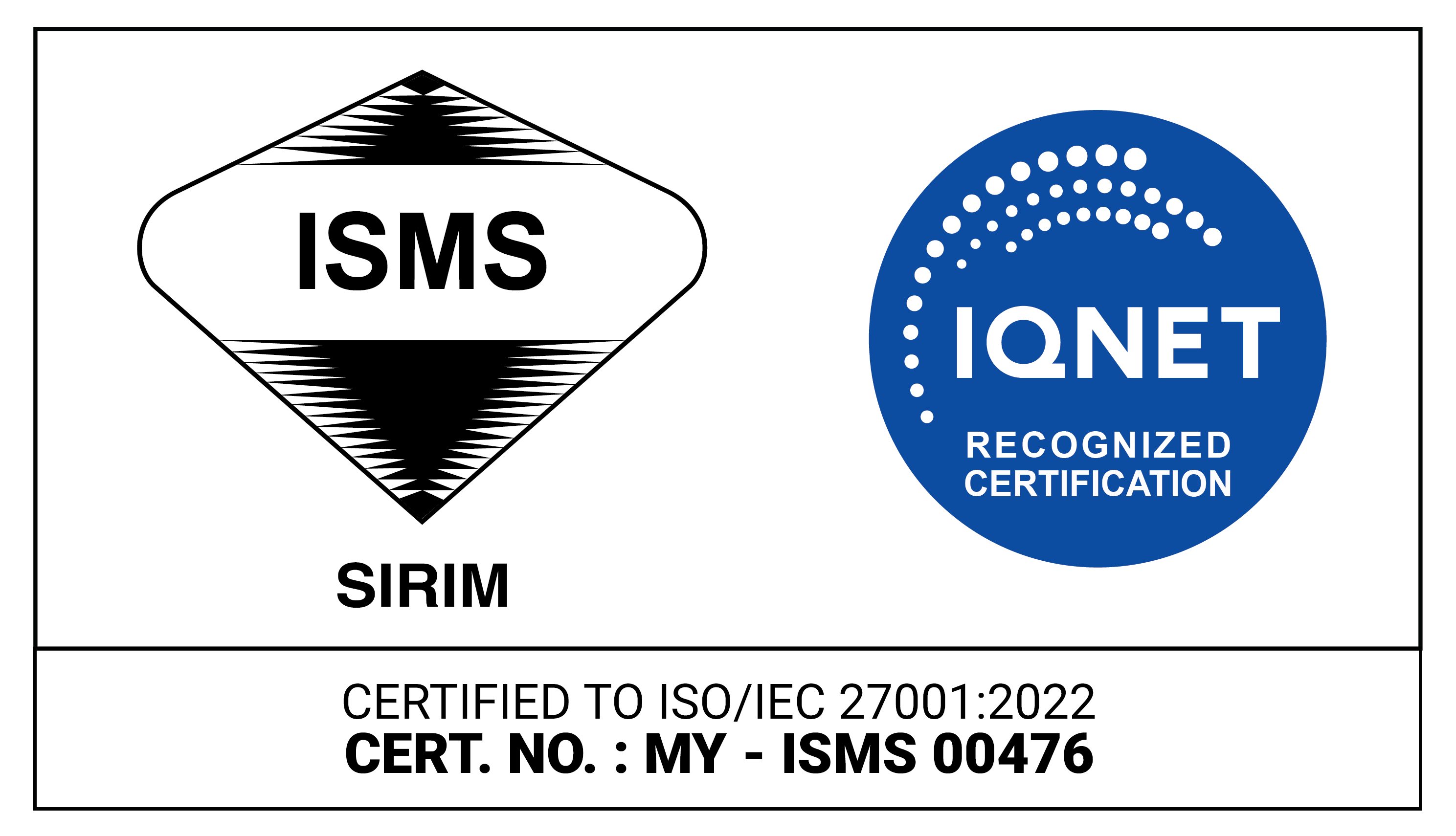
-
Official Websites of
-
MINISTRY OF
PLANTATION AND COMMODITIES -
No. 15, Level 5-13, Persiaran Perdana, Presint 2, 62654 Wilayah Persekutuan Putrajaya
- INFO SIARAN MEDIA
MEDIA RELEASE
- Details
- Hits: 199

SIARAN MEDIASIARAN MEDIA
PROGRAM ‘KNOW YOUR RIGHTS, DO IT RIGHT’ 2025
TEKAN KEPENTINGAN AMALAN PERLADANGAN MAMPAN DIIKTIRAF DI PERINGKAT ANTARABANGSA.
1. Timbalan Menteri Perladangan dan Komoditi, YB Datuk Chan Fong Hin telah merasmikan Program ‘Know Your Rights, Do It Right’ Siri 1 Tahun 2025 anjuran Kementerian Perladangan dan Komoditi (KPK) yang berlangsung di Hotel Courtyard by Marriott, Melaka. Program ini merupakan salah satu inisiatif Kerajaan dalam usaha memerangi isu pemerdagangan manusia dan buruh paksa, khususnya dalam sektor perladangan melalui aktiviti libat urus berterusan bersama pihak industri.
2. Pada tahun ini, KPK dengan kerjasama pihak Pejabat Strategik Nasional Majlis Antipemerdagangan Orang dan Antipenyeludupan Migran (NSO MAPO), melaksanakan aktiviti atau program berkaitan pencegahan jenayah pemerdagangan orang dan penyeludupan migran di Malaysia. Program ini bertujuan memberikan penerangan dan pencerahan kepada pihak industri berhubung hak dan tanggungjawab majikan serta pekerja, isu pemerdagangan orang, buruh paksa dan buruh kanak-kanak selaras dengan perundangan negara dan piawaian antarabangsa.
3. Sesi ini meliputi taklimat dan penerangan berkaitan amalan perburuhan terbaik dan beretika di sektor perladangan oleh penceramah daripada Jabatan Tenaga Kerja Semenanjung Malaysia (JTKSM) dan wakil syarikat SD Guthrie Berhad. Penceramah dari Kumpulan Wang Simpanan Pekerja (KWSP) dijemput bagi memberi penerangan mengenai kaedah pencaruman wang simpanan pekerja bagi pekerja bukan warganegara yang bakal dilaksanakan pada bulan Oktober 2025. Manakala, pihak Institut Perladangan dan Komoditi Malaysia (IMPAC) memberi taklimat mengenai Program Pendidikan Dan Latihan Teknikal & Vokasional (TVET) sektor perladangan.
4. Berdasarkan statistik semasa, lebih 75% tenaga kerja dalam sektor ini terdiri daripada pekerja asing. Kebergantungan tinggi yang berterusan terhadap pekerja asing boleh mewujudkan pelbagai isu dan risiko termasuklah peluang eksploitasi dan buruh paksa. Justeru, program ini adalah untuk memastikan majikan di sektor perladangan mematuhi undang-undang perburuhan di bawah Seksyen 60K Akta Kerja 1955 serta memastikan pematuhan kepada amalan perladangan mampan yang diiktiraf di peringkat antarabangsa.
5. KPK melalui inisiatif pensijilan Malaysian Sustainable Palm Oil (MSPO) telah menggariskan piawaian yang ketat dalam memastikan syarikat perladangan sawit dan pekebun kecil tidak terbabit dalam amalan buruh paksa. Mengikut data rasmi terkini setakat 30 Jun 2025, sebanyak 89.6%atau 5.03 juta hektar kawasan tanaman sawit di Malaysia telah disahkan di bawah pensijilan MSPO. Pencapaian ini menunjukkan komitmen berterusan industri sawit negara dalam memastikan pematuhan kepada amalan perladangan mampan selaras dengan piawaian yang diiktiraf di peringkat antarabangsa.
6. Malaysia telah dinaikkan ke Tier 2 sebagai pengiktirafan terhadap usaha pencegahan, pendakwaan dan perlindungan pekerja dalam Laporan Trafficking in Persons (TIP) 2024 oleh Jabatan Negara Amerika Syarikat (AS). Pencapaian ini menunjukkan komitmen berterusan dari semua pihak dalam menangani isu pemerdagangan orang dan buruh paksa.7. Kementerian menyeru semua pemain industri agar memperkukuhkan sistem penggajian di sektor perladangan berlandaskan prinsip etika dan hak asasi, serta mengamalkan amalan perladangan mampan selaras dengan pensijilan MSPO, bagi memastikan industri perladangan terus berkembang secara berdaya saing dan berintegriti.
KEMENTERIAN PERLADANGAN DAN KOMODITIKEMENTERIAN PERLADANGAN DAN KOMODITI
4 OGOS 2025
- Details
- Hits: 212335
| TITLE | DATE | VERSION | VIEW |
|---|---|---|---|
| MALAYSIA-EUROPEAN FREE TRADE ASSOCIATION ECONOMIC PARTNERSHIP AGREEMENT DELIVERS PREFERENTIAL MARKET ACCESS AND STRONG RECOGNITION FOR MALAYSIAN SUSTAINABLE PALM OIL | 25 JUNE 2025 | English | View |
| MAJLIS PENYERAHAN PROGRAM KAMPUNG ANGKAT MADANI (KAM) TAHUN 2024 KEMENTERIAN PERLADANGAN DAN KOMODITI (KPK) | 31 MAY 2025 | Bahasa Melayu | View |
| MALAYSIA CHARTS COCOA REVIVAL PATH AT MICF 2025: MINISTER JOHARI OUTLINES VISION FOR SUSTAINABLE, HIGH-VALUE INDUSTRY | 26 MAY 2025 | English | View |
| CHINA – MALAYSIA INDUSTRY COOPERATION DIALOGUE SPOTLIGHTS PALM OIL SECTOR COLLABORATION IN CHONGQING | 24 MAY 2025 | English | View |
| PORTSIM AT 20: DRIVING MALAYSIA–CHINA PALM OIL PARTNERSHIP THROUGH INNOVATION AND SCIENTIFIC DIPLOMACY | 19 MAY 2025 | English | View |
| YB DATUK CHAN FOONG HIN, DEPUTY MINISTER OF PLANTATION AND COMMODITIES, TO LEAD MALAYSIAN AGRI-COMMODITY PROMOTION DELEGATION TO CHINA | 18 MAY 2025 | English | View |
| LADA MALAYSIA KEKAL POPULAR DI PASARAN DUNIA DENGAN NILAI EKSPORT MENINGKAT 24% | 13 MAY 2025 | Bahasa Melayu | View |
| YB DATUK SERI JOHARI BIN ABDUL GHANI, MINISTER OF PLANTATION AND COMMODITIES, TO LEAD MALAYSIAN DELEGATION TO KENYA | 6 MAY 2025 | English | View |
| MAJLIS APRESIASI MTIB DAN PELANCARAN BUKU ANATOMI & PENGECAMAN KAYU MALAYSIA | 24 APRIL 2025 | Bahasa Melayu | View |
| MAJLIS RUMAH TERBUKA HARI RAYA AIDILFITRI DAN MERASMIKAN PEJABAT BAHARU CTCS WORLDWIDE SDN BHD (CTCS) | 22 APRIL 2025 | Bahasa Melayu | View |
| JOINT STATEMENT FOREST, AGRICULTURE AND COMMODITY TRADE (FACT) DIALOGUE | 14 APRIL 2025 | English | View |
| MAJLIS KONVOKESYEN IMPAC KE-9: TVET AGRIKOMODITI TERAS PEMBANGUNAN MODAL INSAN NEGARA | 24 FEBRUARY 2025 | Bahasa Melayu | View |
| MALAYSIAN INTERNATIONAL COCOA FAIR (MICF) 2025 TO HELD IN KOTA KINABALU, SABAH ON THE 24-27 MAY 2025 | 20 JANUARY 2025 | English | View |
| MINISTER OF PLANTATION AND COMMODITIES, YB DATUK SERI JOHARI BIN ABDUL GHANI WILL OFFICIATE THE PAKISTAN EDIBLE OIL CONFERENCE (PEOC) IN KARACHI PAKISTAN | 09 JANUARY 2025 | English | View |
| TITLE | DATE | VERSION | VIEW |
|---|---|---|---|
| MSPO STANDARDS PUBLISHED ON THE GLOBALLY RECOGNISED ITC STANDARDS MAP ANOTHER MILESTONE ACHIEVED BY THE HOMEGROWN STANDARDS |
05 DECEMBER 2024 | English | View |
| 500 PENDUDUK KAMPUNG DATUK KERAMAT MENERIMA SUMBANGAN BAKUL MAKANAN MELALUI PROGRAM SANTUNI MADANI | 16 NOVEMBER 2024 | Bahasa Melayu | View |
| MALAYSIAN PALM OIL AFFIRMS ITS COMMITMENT TO SUSTAINABILITY | 27 SEPTEMBER 2024 | English | View |
| WORLD BAMBOO DAY (WBD) 2024 : MEMPERKASA PEMBANGUNAN INDUSTRI BULUH DALAM MEMACU KELESTARIAN SEKTOR PERKAYUAN DI MALAYSIA | 26 SEPTEMBER 2024 | Bahasa Melayu | View |
| INDUSTRI LADA FOKUS TEROKA PASARAN KHUSUS UNTUK NILAI PASARAN LEBIH TINGGI | 20 SEPTEMBER 2024 | Bahasa Melayu | View |
| KPK MENYAMBUT BAIK USAHA UNITED MALACCA BERHAD MENEROKA PENANAMAN KOKO BERSKALA BESAR DI SABAH | 05 SEPTEMBER 2024 | English | View |
| TRANSFORMASI SISA INDUSTRI SAWIT MENJANA EKONOMI HIJAU | 29 AUGUST 2024 | Bahasa Melayu | View |
| PAMERAN KOMODITI KEMENTERIAN PERLADANGAN DAN KOMODITI (KPK) MEMPERKASAKAN SEKTOR PERLADANGAN NEGARA MELALUI PENGETAHUAN DAN INOVASI | 23 AUGUST 2024 | Bahasa Melayu | View |
| PROGRAM TURUN PADANG BUDI AGRI-KOMODITI (SEKTOR PERLADANGAN) GALAKKAN PENYERTAAN PEKEBUN KECIL DALAM INISIATIF KERAJAAN | 15 AUGUST 2024 | Bahasa Melayu | View |
| FROM FRYER 2 FLYER : PROGRAM KESEDARAN MINYAK MASAK TERPAKAI BERSAMA PETRONAS DAGANGAN BERHAD | 3 AUGUST 2024 | Bahasa Melayu | View |
| MALAYSIA KOMITED PASTIKAN PRODUK AGRIKOMODITI YANG DIHASILKAN BERTARAF ANTARABANGSA | 1 AUGUST 2024 | Bahasa Melayu | View |
| PEDALAMAN SABAH SUMBANG 37.5 PERATUS PENGELUARAN KOKO NEGARA | 29 JULY 2024 | Bahasa Melayu | View |
| HARI TEKNOLOGI LEMBAGA GETAH MALAYSIA 2024 PERKENAL TEKNOLOGI SERTA INOVASI TERKINI INDUSTRI GETAH | 23 JULY 2024 | Bahasa Melayu | View |
| MALAYSIA COMMITS TO SUPPLYING CHINA WITH SUSTAINABILITY-CERTIFIED PALM OIL AND RELATED PRODUCTS | 17 JULY 2024 | English | View |
| MISI EKONOMI PRODUK AGRIKOMODITI MALAYSIA KPK KE INDIA PERKUKUH HUBUNGAN DUA HALA ANTARA MALAYSIA DAN INDIA | 16 JULY 2024 | Bahasa Melayu | View |
| MALAYSIA SECURES OVER RM230 MILLION IN PALM OIL TRADE DEALS DURING CHINA VISIT | 15 JULY 2024 | English | View |
| DEPUTY MINISTER OF PLANTATION AND COMMODITIES YB DATUK CHAN FOONG HIN WILL LEAD MALAYSIAN DELEGATION ON A WORKING VISIT AND AGRI-COMMODITY PROMOTION TO CHINA | 07 JULY 2024 | English | View |
| MINISTER OF PLANTATION AND COMMODITIES, YB DATUK SERI JOHARI ABDUL GHANI, WILL LEAD MALAYSIAN DELEGATION ON A WORKING VISIT TO EGYPT AND TURKIYE AND TO OFFICATE MALAYSIAN PALM OIL FORUM | 26 MAY 2024 | English | View |
| LADA SARAWAK LONJAK IMEJ MALAYSIA DI PERINGKAT GLOBAL | 15 MAY 2024 | Bahasa Melayu | View |
| MAJLIS SAMBUTAN AIDILFITRI MADANI 2024 PERINGKAT NEGERI TERENGGANU PERKUKUH JALINAN PERPADUAN ANTARA MASYARAKAT TEMPATAN BERSAMA KERAJAAN PERSEKUTUAN | 09 MAY 2024 | Bahasa Melayu | View |
| KERJASAMA LEMBAGA KOKO MALAYSIA DAN NESTLE (MALAYSIA) BERHAD HASILKAN PRODUK COKLAT DARIPADA BIJI KOKO BORNEO | 06 MAY 2024 | Bahasa Melayu | View |
| MAJLIS PERASMIAN ANUGERAH PERKHIDMATAN CEMERLANG 2023 DAN SAMBUTAN HARI RAYA AIDILFITRI ANJURAN MTIB | 25 APRIL 2024 | Bahasa Melayu | View |
| EU-MALAYSIA JOINT PRESS RELEASE ON EU DEFORESTATION-FREE REGULATION (EUDR) AND THE MALAYSIAN SUSTAINABLE PALM OIL (MSPO) CERTIFICATION SCHEME | 24 APRIL 2024 | English | View |
| MALAYSIA SUCEEDS IN WTO CASE AGAINST EU'S DELEGATED ACT THAT IS DEEMED DISCRIMINATORY TOWARDS MALAYSIAN PALM OIL BIOFUELS | 06 MARCH 2024 | English | View |
| MEMORANDUM PERJANJIAN PROJEK RINTIS MACHINE SPECIALIST IMPAC-SDPB DIJANGKA HASILKAN 100 PEKERJA TEMPATAN BERKEMAHIRAN DALAM SEKTOR PERLADANGAN SAWIT | 23 FEBRUARY 2024 | Bahasa Melayu | View |
| PEMERIKSAAN TERHADAP PENJUALAN PRODUK YANG MEMPUNYAI PELABELAN BERSIFAT DISKRIMNASI TERHADAP MINYAK SAWIT | 07 FEBRUARI 2024 | Bahasa Melayu | View |
Untuk maklumat lanjut berkaitan penerbitan, sila emelkan atau hubungi:
Unit Komunikasi Korporat (UKK)
Ministry of Plantation and Commodities
No. 15, Level 5-13,
Persiaran Perdana,
Precint 2,
62654 Putrajaya, MALAYSIA
No. Telefon: 03-88803324
Emel : ukk [@] kpk.gov.my
- Details
- Hits: 419
 MEDIA RELEASE
MEDIA RELEASE
MINISTER OF PLANTATION AND COMMODITIES, YB DATUK SERI
JOHARI BIN ABDUL GHANI WILL OFFICIATE THE PAKISTAN EDIBLE OIL CONFERENCE (PEOC) IN KARACHI PAKISTAN
The Minister of Plantation and Commodities, YB Datuk Seri Johari Bin Abdul Ghani is set for an official visit to Pakistan on 9th January 2025 to officiate the Pakistan Edible Oil Conference (PEOC).
The PEOC, an annual flagship event for the edible oil sector, brings together stakeholders from across the region, including producers, traders, buyers, and policymakers. This year’s conference will serve as a platform to explore industry developments, discuss sustainable practices, and strengthen international partnerships in the edible oil trade. During the conference, YB Datuk Seri Johari Bin Abdul Ghani will deliver a keynote address and officially inaugurate the event on 11 January 2025.
Pakistan is Malaysia’s seventh-largest palm oil importer, making it a strategic partner in the edible oil sector. The visit by YB Datuk Seri Johari Bin Abdul Ghani aims to reinforce business collaboration between Malaysian and Pakistani partners while promoting Malaysian palm oil’s position as a sustainable and high-quality product. The Minister’s keynote address at the PEOC will focus on Malaysia's leadership in sustainable palm oil practices, the increasing global demand for cooking oil and its derivatives, and the economic significance of palm oil to both nations. It will also emphasize the mutual benefits of enhanced trade, innovation, and collaboration, reaffirming Malaysia's commitment to strengthening its longstanding relationship with Pakistan in the palm oil and edible oils industry.
In addition to officiating the PEOC, the Minister will meet the Minister of Industries and Production Pakistan to strengthen bilateral cooperation between the two countries, engage in meetings with government officials, business leaders, and will also hold a roundtable discussion with key stakeholders from Pakistan's oils and fats industry. This meeting will focus on exploring opportunities for Malaysia to recapture its market share in Pakistan’s oils and fats sector, while fostering collaborative strategies to strengthen trade ties and enhance the competitiveness of Malaysian palm oil.
With global demand for sustainable and high quality edible oils on the rise, Malaysia is focused on remaining a consistent and trusted supplier. The Minister’s visit to Pakistan and participation in the PEOC highlight Malaysia’s approach to build strong partnerships, encourage value added trade and joint ventures, and drive progress in the palm oil industry internationally.
MINISTRY OF PLANTATION AND COMMODITIES
9 JANUARY 2025
- Details
- Hits: 322

PRESS RELEASE
MALAYSIAN INTERNATIONAL COCOA FAIR (MICF) 2025 TO HELD IN KOTA KINABALU, SABAH ON THE 24-27 MAY 2025
- The Deputy Minister of Plantation and Commodities, YB Datuk Chan Foong Hin, today officiated the Pre-Launch Ceremony of the Malaysian International Cocoa Fair 2025 (MICF 2025), which took place at the Hilton Hotel, Kota Kinabalu, Sabah. The event was attended by officials of Ministry of Plantation and Commodties (KPK), agencies, strategic partners, cocoa and chocolate industry players plus stakeholders.
- The Ministry of Plantation and Commodities (KPK) is fully supporting the Malaysian Cocoa Board (LKM), in organizing the Malaysian International Cocoa Fair (MICF) 2025 which is scheduled to take place from 24th to 27th May 2025 at the Sabah International Convention Centre (SICC), Kota Kinabalu, Sabah.
- YB Datuk Chan Foong Hin, emphasized the significance of MICF 2025, which will be held outside of Kuala Lumpur for the first time, in Sabah. Sabah, known as the 'Land Below the Wind,' is a major contributor to the country's cocoa production, accounting for 60% of Malaysia's total cocoa output.
- MICF 2025 serves as a crucial platform to discuss key issues and opportunities in the global cocoa industry, including the production of premium cocoa beans and Malaysia's involvement in cocoa processing from “bean-to-bar” chocolate manufacturing. KPK fully supports MICF 2025 as an international event that solidified collaboration with international bodies and agencies like the International Cocoa Organization (ICCO), Cocoa Association of Asia (CAA), and ASEAN Cocoa Club (ACC).
- Datuk Dr. Ramle Hj Kasin, Director General of LKM, in his welcoming speech, announced that MICF 2025 will feature three main events: the Malaysian International Cocoa Conference, the Malaysian International Cocoa Exhibition, and the Malaysian International Cocoa Dinner. The theme for MICF 2025 is “MyCocoa Delight: Indulge, Meet and Connect,” emphasizing opportunities to enjoy cocoa products, meet industry experts, and explore business collaboration.
- The exhibition is expected to attract over 1,000 participants for the conference and dinner, as well as 25,000 trade and public visitors. With more than 100 confirmed exhibitors, MICF 2025 will include programs such as the International Cocoa Business Matching (ICBM), cocoa business matching, forums, paper presentations, and post-event field visits.
- The pre-launch aims to generate interest among industry players, stakeholders, and the public to participate in the activities offered. Various chocolate products from bean-to-bar, including premium and artisan chocolates, were showcased as a teaser before the beginning of main event in May, 2025.
MINISTRY OF PLANTATION AND COMMODITIES 20 JANUARY 2025
- Details
- Hits: 946

PRESS RELEASE
MSPO STANDARDS PUBLISHED ON THE GLOBALLY RECOGNISED ITC STANDARDS MAP
ANOTHER MILESTONE ACHIEVED BY THE HOMEGROWN STANDARDS
- The Ministry of Plantation and Commodities (KPK) is proud to announce that the Malaysian Sustainable Palm Oil (MSPO) standards have been officially published on the ITC Standards
Map, marking a significant recognition of Malaysia’s commitment to sustainability, traceability, and responsible palm oil production.
- The ITC Standards Map, developed by the International Trade Centre (ITC), is the world’s largest database of sustainability standards. As a joint agency of the United Nations (UN) and the World Trade Organization (WTO), ITC plays a critical role in advancing sustainable trade and market access globally. The inclusion of MSPO on this platform underscores its credibility as a benchmark for sustainable practices, enhancing its visibility among international buyers and stakeholders.
- YB Datuk Seri Johari Abdul Ghani, Minister of Plantation and
Commodities said “The publication of the MSPO Standard on ITC Standards Map is a testament to Malaysia's leadership and commitment in sustainable palm oil production. This recognition not only strengthens international buyers' trust in our commitment towards sustainable practices but also opens significant opportunities for the Malaysian palm oil industry including smallholders to penetrate the premium market. We will continue to strive to ensure that Malaysian palm oil meets the highest global standards while contributing to economic growth and environmental protection.”
- For international buyers, this milestone ensures confidence in sourcing traceable and sustainable palm oil. For Malaysian smallholders, it provides greater access to global markets, fostering inclusivity and competitiveness. For the broader industry, it cements Malaysia’s leadership in sustainable palm oil production and reinforces its position in global trade.
- We appreciate the effort from the ITC Standards Map team and the Department of Standards Malaysia (DSM) for their invaluable support. The Ministry congratulates MSPO on this achievement and seeks continuous support from the industry for the MSPO initiative as we advance a more sustainable future for Malaysia’s palm oil industry.
For further information, please refer to the following link:
https://standardsmap.org/en/factsheet/142400/overview?name=& origin=Malaysia
MINISTRY OF PLANTATION AND COMMODITIES
5 DECEMBER 2024
Today Visitor : 1238 | This Month Visitor : 148547







